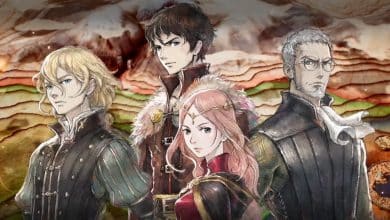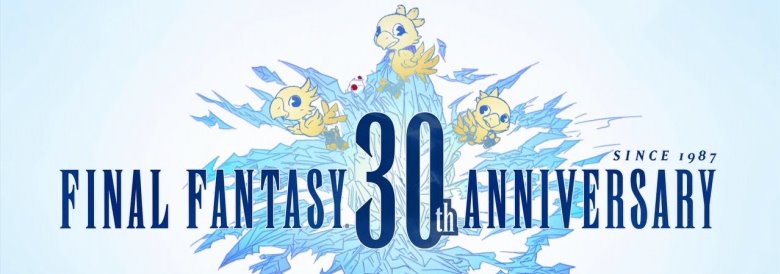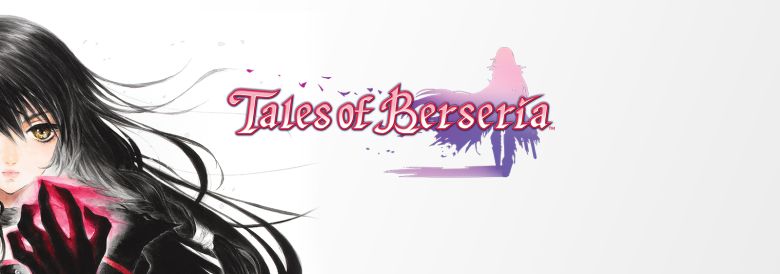
LIKE A DRAGON: INFINITE WEALTH
The transition of Sega's long-running Yakuza series from action/brawler to turn-based JRPG was perhaps the boldest decision Ryu Ga Gotoku ever made for its beloved "child". Combined with the decision to change the main protagonist, from the tough guy with a heart of gold, Kiryu Kazuma to the naive and cheerful, but equally tough when circumstances demanded it, Ichiban Kasuga was another big gamble that had to be won at all costs. And the miracle workers from Japan succeeded there too. Like A Dragon: Yakuza, as it was announced in the west to smooth the transition from the Yakuza name to Like A Dragon (as it is titled in Japan), was a great game and rightfully loved by fans of the series.
For Like A Dragon: Infinite Wealth, the stakes were even higher, as Ryu Ga Gotoku claimed that this sequel would be their magnum opus, especially in terms of content, for which they even gave clear instructions to the audience not to play the game "in one sitting" after its release, but to take their time with it to avoid health problems! Big words, which are nevertheless true to reality, as Infinite Wealth is indeed Ryu Ga Gotoku's longest game, in a series where the vast majority of its "episodes" are over 35-40 hours long. But what's going on, in terms of its individual elements?
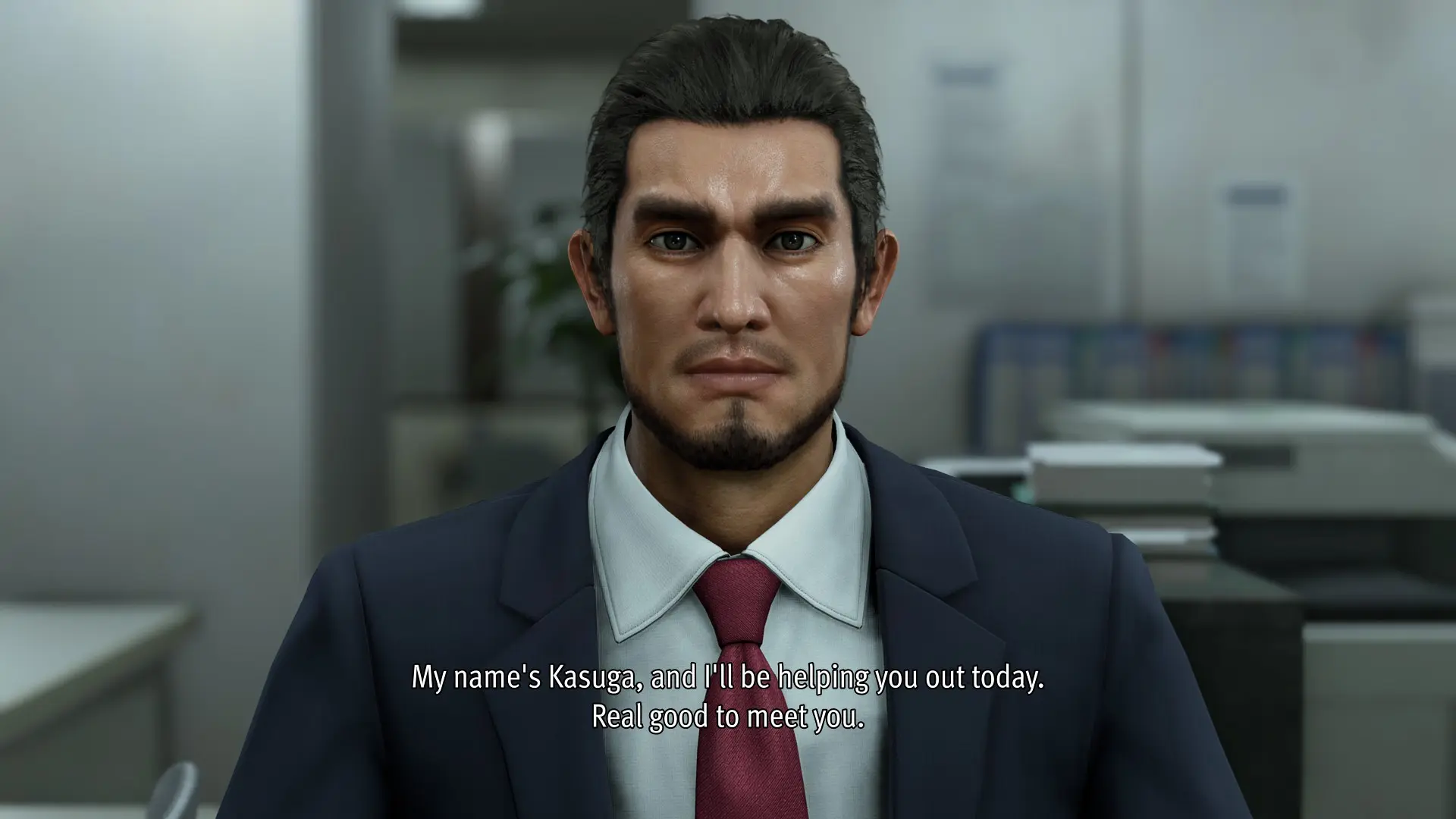
Starting with the main storyline, Infinite Wealth takes us four years after the events of Like A Dragon: Yakuza. We thus follow the aftermath of the Great Dissolution of the Tojo Clan and the Omi Alliance, which led to the definite (?) dissolution of the Japanese Mafia, as its practices and "ideals" no longer had a place in modern times. Ichiban Kasuga, far from organized crime, is now working as an employee at Hello Work, a company that takes on the task of finding jobs for the unemployed according to their resume. Yet at the same time, with the few resources his position provides, he is secretly trying to help his former yakuza "colleagues" reintegrate into society, as it is too difficult for a civilian to tolerate hiring a former mafia member into his business.
However, a strangely suspicious event changes his life again, as for reasons initially unclear, he is fired from his job and along with him, the whole "old gang" of Nanba and Adachi, in their respective jobs. Without going into too many spoilers, we learn that Ichiban's biological mother, Akane, whom he has famously never met, plays a major role in the intervening events, and has even disappeared off the face of the earth. At the urging of an old acquaintance, Ichiban will go to Hawaii to track her down, and there he will meet Kazuma Kiryu, who in turn is looking to find Akane for his own reasons. A rather aged and sickly Kiryu, but with vast reserves of soul and the famous heart of the dragon, which may be the last time we hear it beating...
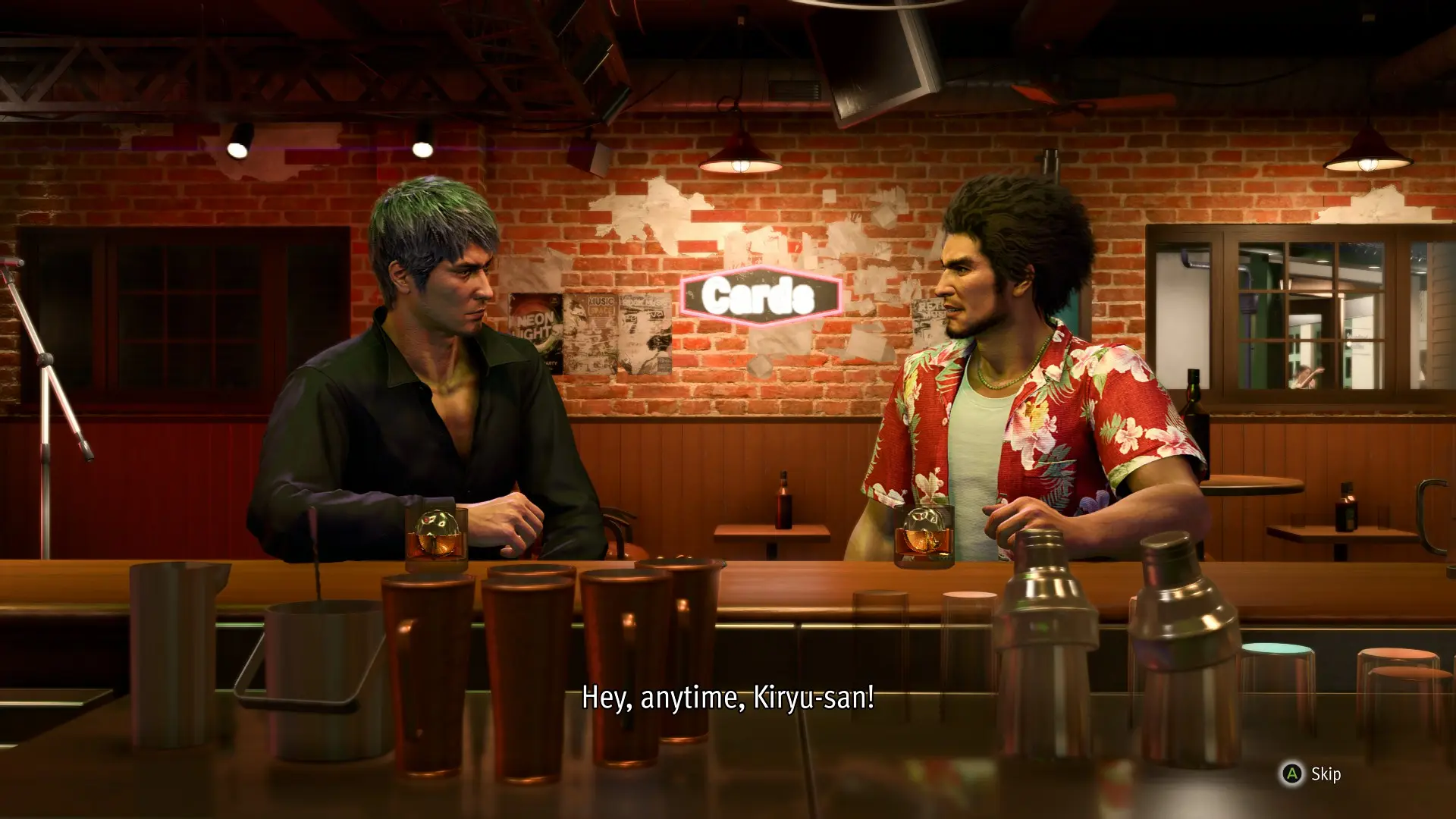
Infinite Wealth's story is a "slow-burner", as they say, as it's typically slow to get going, spending several of the first hours on more "light-hearted" topics, such as Ichiban's... love for Saeko. However, even when all the cards on the table are revealed, the plot fails to impress to the same degree that previous games in the series, and even its predecessor, have managed. Of course, that doesn't mean it's a weak story, after all, Ryu Ga Gotoku's writers are guaranteed to surprise the player with the twists and turns and the implications (political and/or social) that their stories have (the same is true here), and the cast of characters (new and old) and the development of their personalities are, once again, excellent. Just in my personal opinion, I would have liked something stronger.
However, the story part is the only element that needs to be compared to Like A Dragon: Yakuza, as in everything else, Infinite Wealth is improved. First and foremost, the element of turn-based battles, which feature better flow, a wider range of options, and tactics. For example, the correct positioning of team members on the battlefield is of great importance, as it is possible to achieve hits with the help of objects close to the attacking member or backstabs that are suitable for breaking the defences of opponents who are locked in their shell. Alternatively, if aimed appropriately, a "carom" of blows can be created, to our advantage, or some area skills can cause collateral damage to nearby enemies. All of this, of course, is accomplished in the humorous style that characterizes the series, with the implementation of many special moves and enemies (don't forget that Ichiban played Dragon Quest as a kid and has a great...imagination) being hilarious.
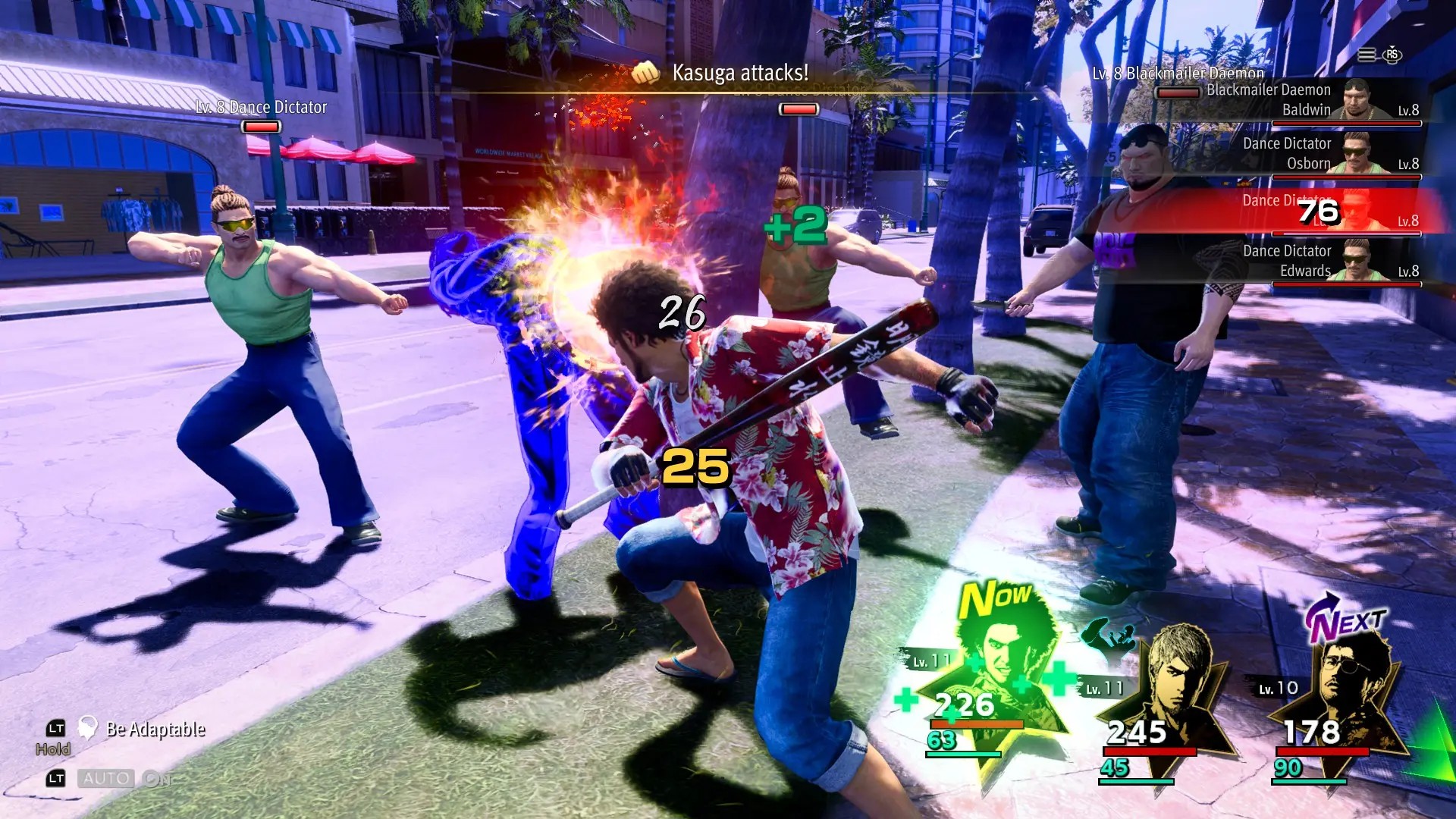
Strong bonds between members are still very important, because they unlock tag-team attacks, which can be overwhelming, and often add a valuable follow-up attack to their arsenal. Therefore, it's well worth it to follow their stories in the Survive/Revolve Bar and hear what they have to say when we stop by the right location. Of course, the various jobs corresponding to classes exist, some are even particularly imaginative, summarizing new moves and traits for the heroes who choose them.
The jobs and their customization depend heavily on Ichiban's six personality traits (style, charisma, kindness, intellect and confidence), and open up possibilities for more experimentation, as some skills can be transferred from job to job. Overall, the flavour left by the combat system is that it has fixed all of the possible shortcomings of its predecessor, creating very exciting, robust and fast-paced battles, something not easy to implement in a turn-based mechanic.
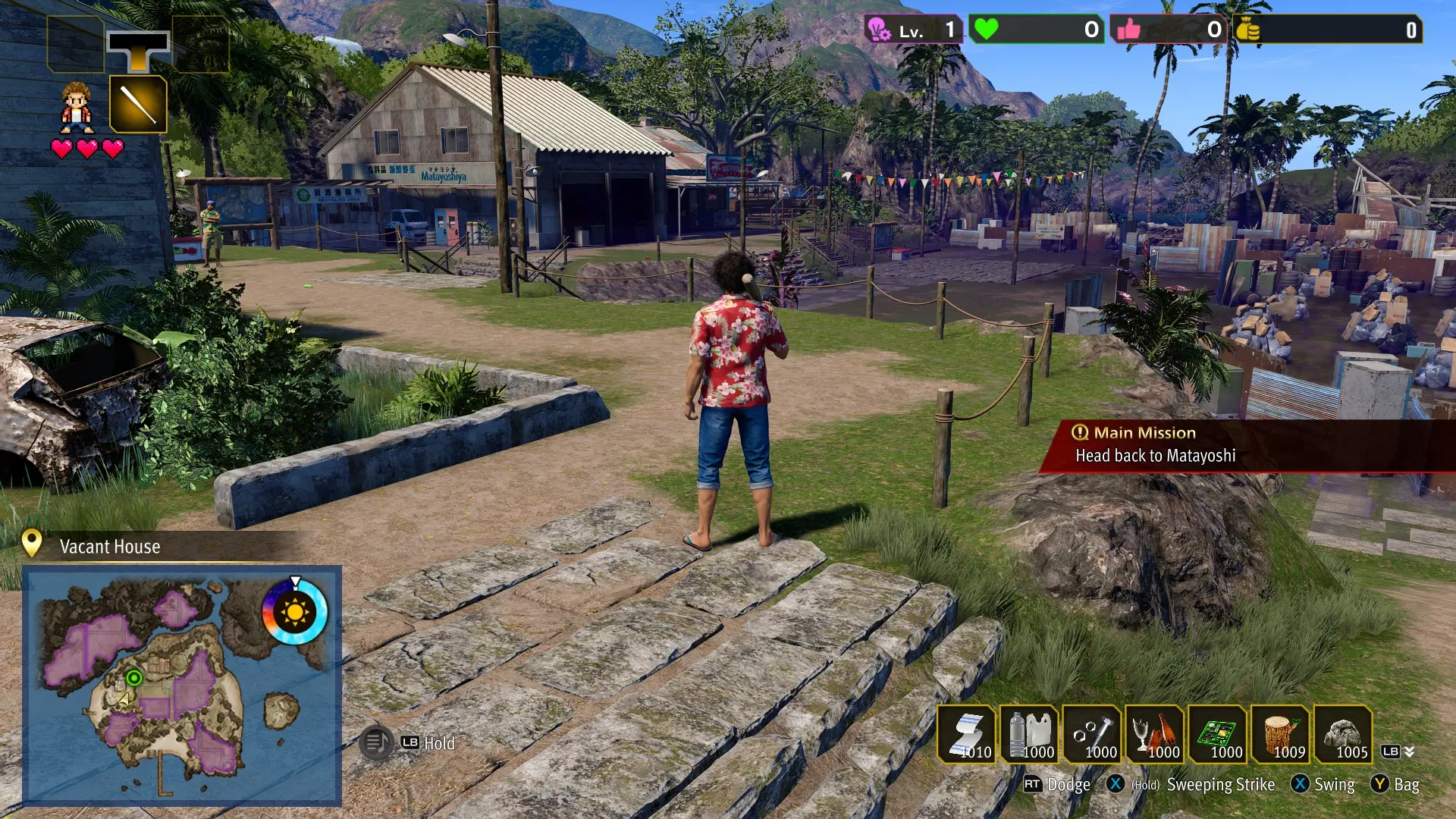
Besides that, the game has several more surprises in store, especially after the midway point, where the story now swings between Yokohama/Kamurocho and Honolulu. And Honolulu, which is the completely new city in the series, is highly enjoyable to explore. It's large enough in size that we often need taxis or the special skate to speed up the arrival process between destinations, and full of side activities, many of which are mini-games that, under other circumstances, could be standalone titles.
As an example, we can mention Sujimon, a variant of... Pokemon (what else?), where we can "capture" some opponents after the end of a battle, train them and have them fight against other Sujimon, in the respective arenas. A side activity that can easily hold interest for double-digit hours, which is also true of the other mini-game, Dondoko Island, which is a spoof of Animal Crossing.
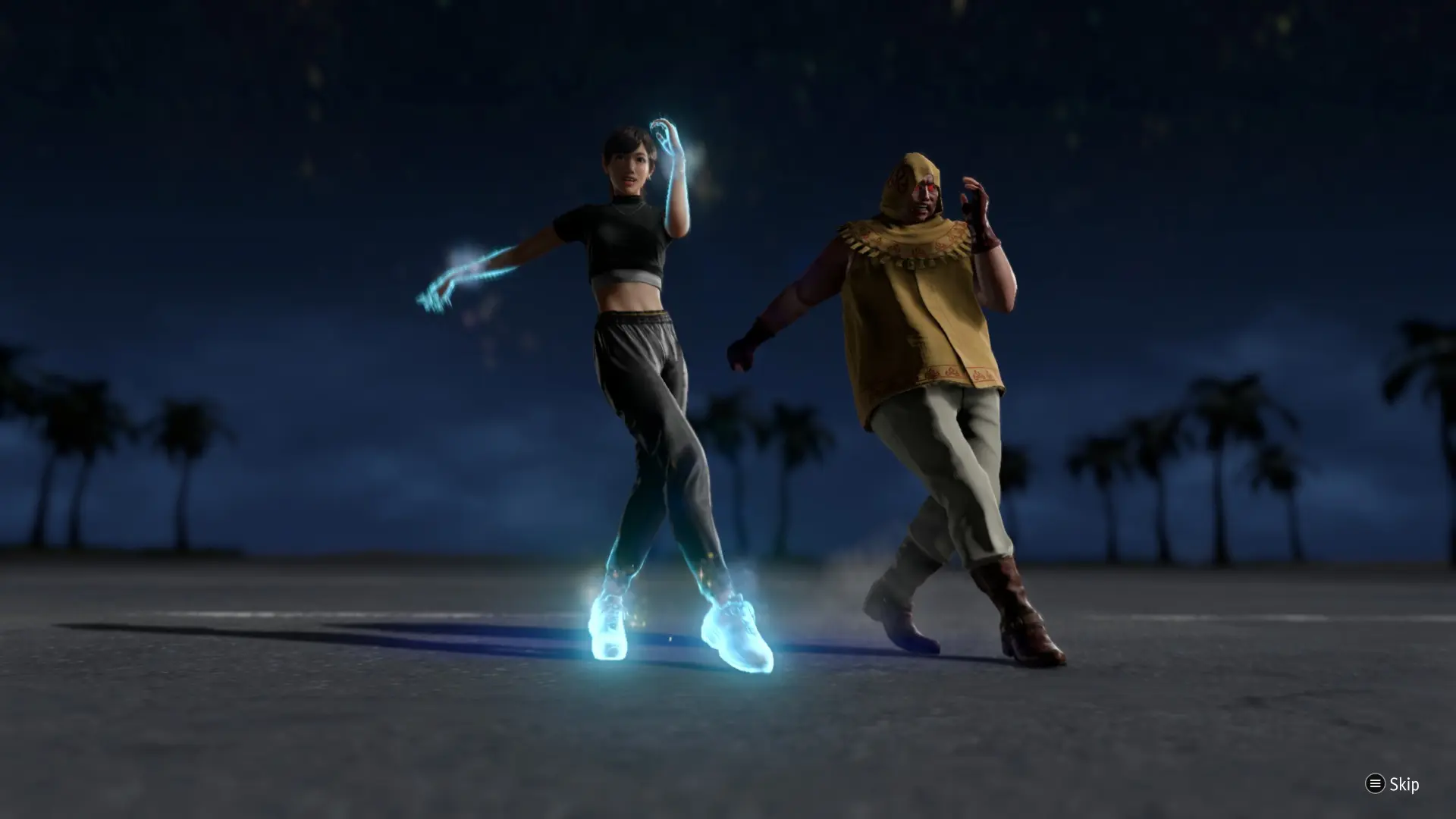
In Dondoko Island, we take on the task of clearing a polluted island of its waste (an event directly related to the game's story) and revitalizing it to such an extent that it becomes a first-class tourist resort. Consequently, we build roads, houses, set up facilities, etc., in a very addictive sub-game, perfect for making us forget what we were supposed to do in the main story.
A main story that lasts around 45-50 hours, with little need for grinding (if needed, there are endless dungeons for that very purpose) and in general, with a passable difficulty level, that apart from a couple of battles, I wouldn't say we had any particular problems to move on. I could say that I found it somewhat easier than its predecessor, especially with the ease with which one can accumulate a great deal of money towards the end of the game and significantly strengthen one's characters by buying and/or crafting powerful weapons. However, this is not a rebuke to the quality of Infinite Wealth, as the game strives first and foremost to be entertaining, and it succeeds completely.
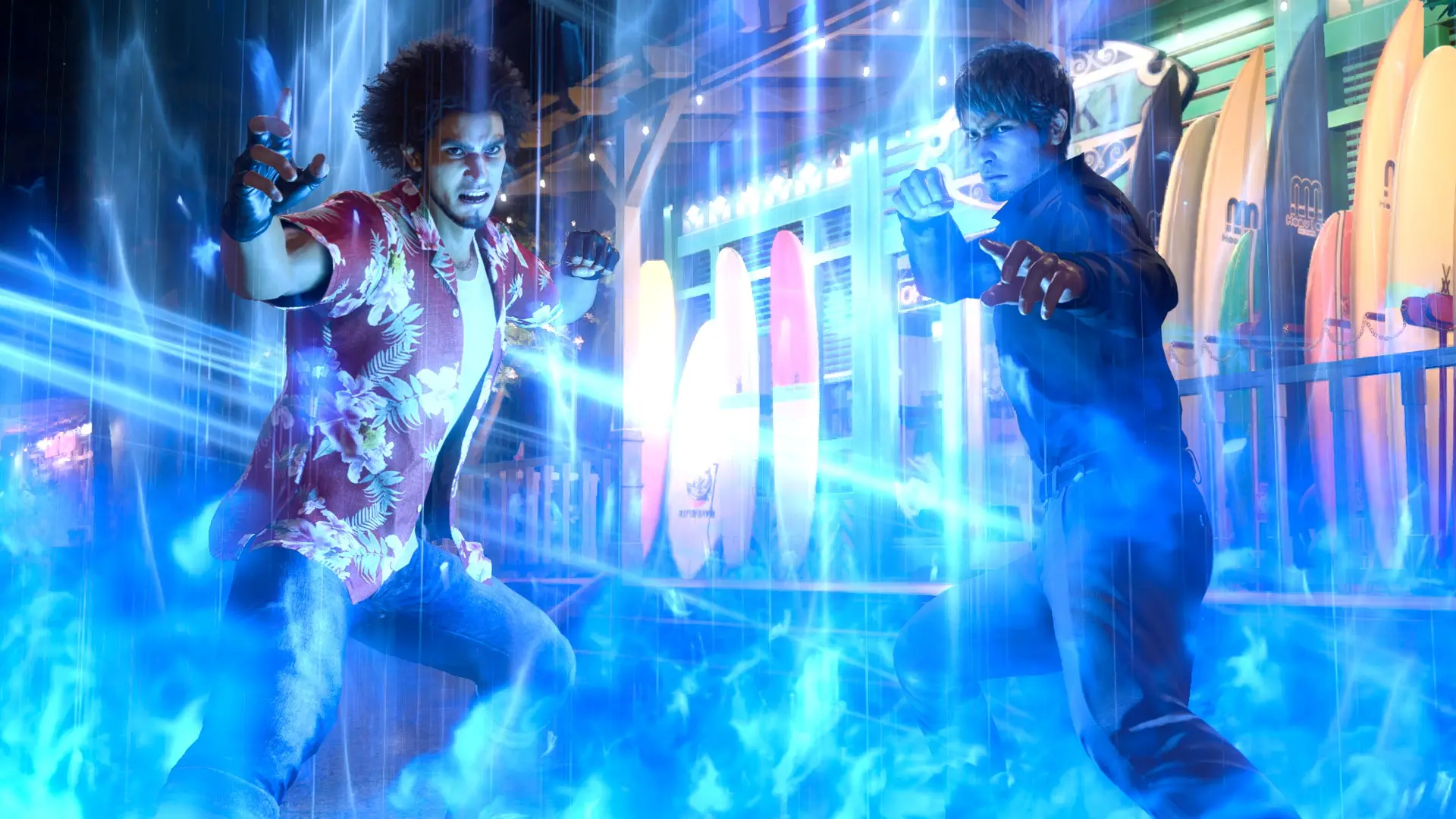
With literally dozens of side activities (there's even a Crazy Taxi variant, in addition to the familiar arcades, karaoke, baseball, pachinko, blackjack, etc.), but also with a story that, despite its relatively limited potential, will definitely manage to move fans of the series, Like A Dragon: Infinite Wealth is a great game that can keep you busy for dozens of hours and make you feel that your money has been well spent. If it weren't for the unacceptable, by all means, paywall on New Game+ (only unlocked if you buy the Deluxe or Premium version), then its value would be even greater.
We warmly thank Zegetron for providing the review code.
RATING - 92%
92%
Bon Voyage
Perhaps the peak of the Yakuza series in terms of its massive content, Like A Dragon: Infinite Wealth will steal all your remaining free time.








